The Ukrainian church is in trouble. Tensions brought about by the 2022 Russian invasion have exacerbated the division between two rival communions, each of which claims to be the legitimate Orthodox church in Ukraine. To explain why this is happening, we will first have to look at church history.
Unlike the Catholic Church, the Eastern Orthodox Church does not have a unified global governance structure. Rather, it is a set of regional churches that share the same theology but have independent (or “autocephalous”) heads, usually called patriarchs. Formally, the boundaries of these regional churches are independent of political borders. However, there is a strong tendency for each independent Orthodox nation to desire its own independent church.
Historically, the Orthodox Church in Ukraine, headed by the Metropolitan (senior bishop) of Kyiv, has been under the jurisdiction of the Russian Orthodox Church, headed by the Patriarch of Moscow. After Ukraine declared independence following the fall of the Russian Empire in 1917, Archpriest Vasyl Lypkivsky took the title of “Metropolitan of Kyiv and All Ukraine.” He founded the independent “Ukrainian Autocephalous Orthodox Church” (UAOC). The Soviet Union, however, soon absorbed Ukraine, and the UAOC failed to gain a significant following. Neither did the other Orthodox churches worldwide recognize it as legitimate.
Ukrainian aspirations for national and ecclesiastical independence got a second chance after the breakup of the Soviet Union in 1991. In 1992, Metropolitan Filaret of Kyiv declared independence from Moscow, taking the title of “Patriarch of Kyiv” and founding the “Ukrainian Orthodox Church—Kyiv Patriarchate” (UOC-KP). As with the UAOC, the other Orthodox patriarchs did not recognize the UOC-KP.
Those portions of the Ukrainian Church that remained loyal to Moscow coalesced around a new Metropolitan of Kyiv, Volodymyr, and came to be called the “Ukrainian Orthodox Church—Moscow Patriarchate” (UOC-MP). There are now at least three churches claiming to be the true Ukrainian Church: the UOC-KP, the UOC-MP and the UAOC. For that matter, the Ukrainian Greek Catholic Church, stemming from a 16th-century reunion between the Ukrainian Church and the Roman Catholic Church, makes a fourth.
To the Ukrainian faithful, this amount of confusion was an intolerable situation. For Orthodox Christians, questions of succession and legitimacy are not simply questions of governance. Because they received their own sacramental ordination from their forebears in a line of succession that stretched back to the Apostles and ultimately to Jesus Christ, the bishops could impart grace to the populace through the sacraments. Thus, underlying a question like, “Who is the legitimate bishop of Kyiv?” is the more fundamental question, “How may I be united to Christ?” An illegitimate bishop, on the other hand, is a usurper against Christ and thus endangers the souls of those in his care.
To remedy this situation, representatives of the UOC-KP, the UAOC and parts of the UOC-MP met in a council to negotiate a reunification. They were partly successful. In 2018, they formed the “Orthodox Church of Ukraine” (OCU). The Ecumenical Patriarch of Constantinople—the most senior patriarch in the Eastern Orthodox Church—granted the OCU his official recognition and released it from its dependence on Moscow. For this affront, the Russian Orthodox Church broke communion with the Church of Constantinople and the other Orthodox churches (Jerusalem, Greece, and Cyprus) that recognized its action. The schism, which had once been internal to the Ukrainian church, thus spread to the entire Eastern Orthodox Church. To the present day, it has not healed.
A look at Ukraine’s wartime religious landscape
The OCU and the UOC-MP became the two main competitors in Ukraine. In 2018, Ukrainian President Petro Poroshenko supported the OCU as a potential bulwark against Russian interference. Meanwhile, the state looked upon the UOC-MP with suspicion, seeing it as a potential source of Russian influence and even outright treachery.
After Russia invaded Ukraine in 2022, the UOC-MP itself declared full autonomy from Moscow. Thus, neither major Orthodox church in Ukraine officially owed allegiance to the Russian Orthodox Church. However, this did not remove the stigma of disloyalty from the UOC-MP.
Investigative journalist Flavius Mihaies visited Ukraine to assess the situation on the ground. He was fond of people who had endured significant destruction. Ukrainians have lived under two years of missile attacks that have destroyed infrastructure, homes and religious sites as well. This hasn’t stopped their determination to fight. They acknowledge how vital Western military support is, but many are diffident about the speed and amount of it. Similarly, while everyone acknowledges the need to defend the Ukrainian state from an invading foreign power, some have been dissatisfied with that state’s indifference and even hostility in matters of religion.
The Ukrainian state has put heavy, albeit unofficial, pressure on UOC-MP parishes to switch their allegiance to the OCU. UOC-MP parishes may be subject to police searches, looking for signs of collusion with the enemy. In some cases, church buildings have been forcibly taken from the UOC-MP and given to OCU priests. Mihaies reports that many OCU priests perform the liturgy in a mostly empty building. In at least one case, the local UOC-MP community, locked out of its own church, chose to perform the liturgy in a barn.
These people would rather worship standing in the hay than attend an illegitimate liturgy with a priest they do not recognize. To make matters worse, the two churches do not even pray in the same language. The UOC-MP uses the ancient Church Slavonic tongue, a language related to the common ancestor of Polish, Serbian, Ukrainian and Russian. The OCU, on the other hand, uses the modern Ukrainian language, distancing itself from the Russian Orthodox Church, which also uses Church Slavonic.
Yet Mihaies did not find the UOC-MP faithful any less patriotic than their OCU compatriots. Nationalism runs strong here, especially since the state is under attack. The UOC-MP vehemently denies accusations of sympathizing with Russia, and its faithful see themselves as no less Ukrainian than anyone else. Like the members of the OCU, they too fight in the trenches, organize support for the war effort at home and pray for Ukrainian victory.
Mihaies expresses concern about religious freedom in Ukraine. UOC-MP members fear the sidelining or even persecution of their church. The church has complained of violence and forced conversions. For the most part, the international community has failed to take heed. Although the UN has documented a few incidents, there remains a fear of criticizing Ukraine too strenuously. Human rights observers and Western governments do not want to undermine Ukraine or give ammunition to Russian propagandists. The US and its allies tend to take the Ukrainian government line. They accept its official religious freedom policy at face value and are not involved in intra-Orthodox issues.
Mihaies proposes a more nuanced Western approach to Ukraine. We should acknowledge the ongoing religious conflict and its impact on Ukrainian society. He suggests linking Western support with efforts to address concerns about religious persecution and corruption in Ukraine.
By promoting inclusivity and transparency in governance, the West can empower Ukraine to heal internal divisions and emerge stronger from the conflict.
[Peter Choi edited this podcast.]
[Peter Choi and Anton Schauble wrote the first draft of this piece.]
The views expressed in this article/podcast are the author’s own and do not necessarily reflect Fair Observer’s editorial policy.



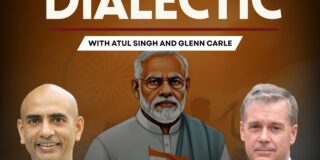
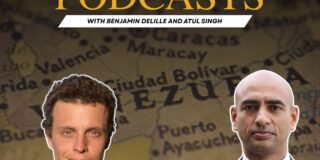


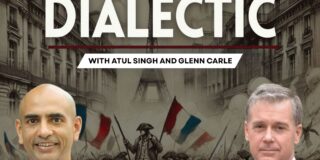

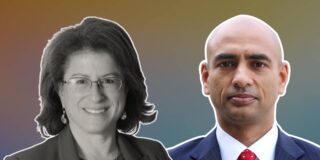
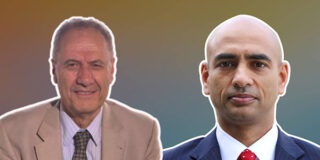



Comment